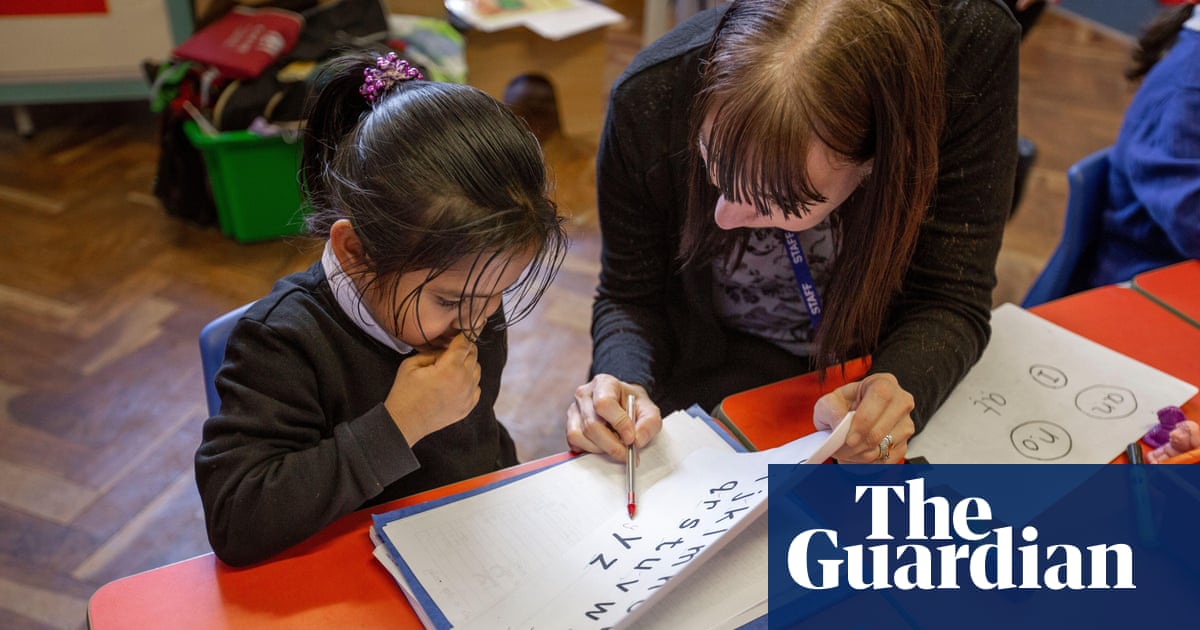
Children with special needs in England have slipped further behind their peers in reading, writing and maths, despite recent legislation and advances in teaching making their education a high priority.
School leaders described the results as “incredibly disheartening”, and called for better specialist support and funding to avoid the collapse of England’s special needs education system.
The Durham University research looked at the results from Sats national assessments since the introduction of the 2014 Children and Families Act and the special educational needs and disability (Send) code of practice, which overhauled how local authorities and schools support children with special needs.
Based on the records of 2.5 million year 6 primary school pupils since 2014, the research identified “a concerning trend of increasing academic achievement gaps over time for most Send categories” in reading, writing and maths, compared with peers without special needs.
Pepe Di’Iasio, the general secretary of the Association of School and College Leaders, said: “The results of this study are incredibly disheartening and reinforce the need for urgent action over the Send crisis.
“Schools do everything they can to support pupils with additional needs but there are huge problems with funding, the availability of specialist support and delays in securing education, health and care plans. The whole system is on the brink of collapse.”
Dr Johny Daniel, the author of the research and an assistant professor at Durham’s school of education, said: “There have been several positive developments and improvements in approaches to support pupils with Send. However, the study’s findings indicate that these developments have not yet fully translated into improved outcomes for these students.
“One contributing factor is that, despite their crucial role, teachers and teaching assistants often do not have sufficient access to professional development opportunities that would enable them to implement the latest evidence-based support strategies effectively for their students with Send.”
On average, by 2018-19, year 6 pupils with Send were almost two years behind in writing, 1.7 years behind in maths, and 1.5 years behind in reading compared with their peers, and with a wider gap between the two groups than in 2014-15.
The research found similar patterns for children with profound and multiple intellectual disabilities as well as those with specific difficulties such as hearing impairments or autism spectrum disorder, who had smaller academic achievement gaps.
Daniel said: “This gap highlights a systemic issue where the necessary training and resources are not adequately provided, making it challenging for educators to apply best practices in the classroom. It’s important to note that this is not a reflection on the dedication or capabilities of teachers and teaching assistants themselves, but rather an area where additional support and investment are needed.”
after newsletter promotion
The ASCL’s Di’Iasio said: “The new government must act swiftly to provide more investment in Send support and in training for teachers and teaching assistants. We have to do better for these children. The government must work with the sector to ensure that their needs are built into all educational policies and practices.”
Some groups of children with specified disabilities did show progress against their peers. The research found that pupils with visual impairments had “a marginal decline in the achievement gap” in reading, maths and writing in 2019 compared with the previous year.
Catherine McKinnell, the minister for school standards, said: “For too long, children and young people with Send have been let down by a system that is not working.
“We are determined to tackle these issues head-on, improving children’s life chances with better inclusivity, expertise and capacity within mainstream schools, as well as making sure special schools cater to those with the most complex needs.
“There is no ‘magic wand’ to fix these deep-rooted issues immediately, but we have already started with Ofsted reform, our curriculum review, and more training for early years staff, and will continue to act as quickly as possible to create the change that is so desperately needed.”
Source: theguardian.com


















